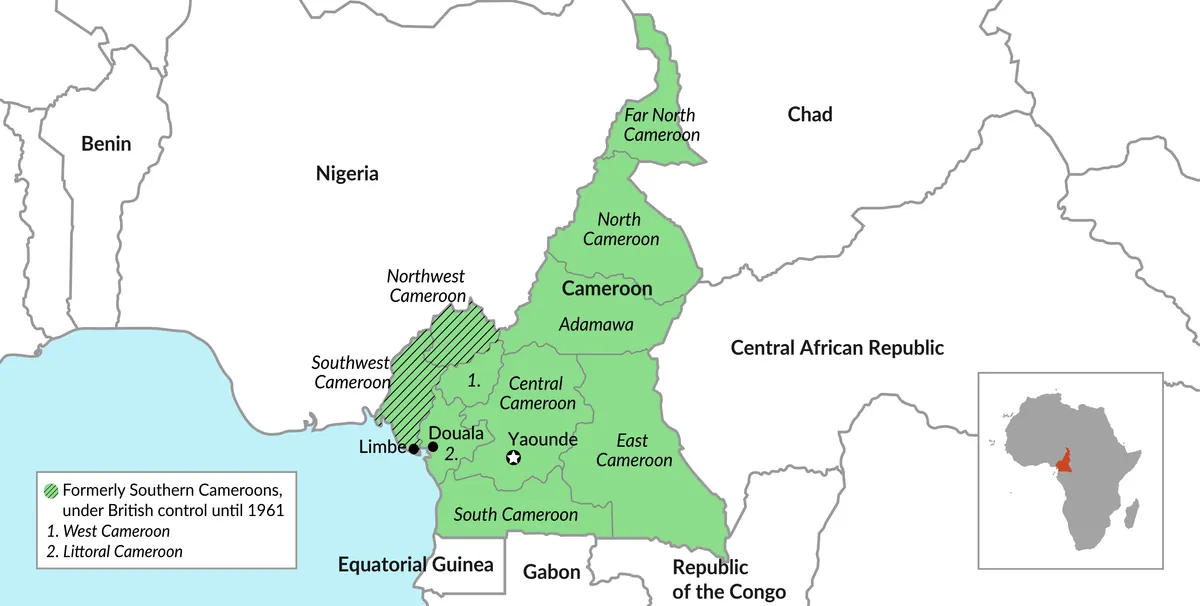Norway Detains German-Cameroonian in Landmark Humanitarian Crime Case
Norwegian authorities have detained a German national of Cameroonian origin for allegedly inciting crimes against humanity in Cameroon's Anglophone crisis. This marks Norway's first legal proceeding for such offenses.

In a groundbreaking legal move, Norwegian authorities have apprehended a German national of Cameroonian descent for allegedly inciting crimes against humanity in Cameroon. This marks Norway's inaugural legal proceeding for such offenses, signaling a significant step in international criminal justice.
The suspect, a man in his fifties residing in Norway, is believed to have played a pivotal role in the ongoing armed conflict in Cameroon. The National Criminal Investigation Service (KRIPOS) is spearheading the investigation, with prosecutor Anette Berger emphasizing that the case is in its early stages.

The conflict in question, known as the Anglophone crisis, has been ravaging Cameroon's English-speaking regions for the past eight years. This strife emerged in 2016 when peaceful protests were met with a government crackdown, leading to the formation of armed separatist groups seeking independence for the Anglophone areas, which they refer to as Ambazonia.
Cameroon, a nation of approximately 27 million people as of 2024, has a complex colonial history that contributes to its current linguistic divide. The country gained independence from France in 1960, but its Anglophone regions, comprising about 20% of the population, were formerly administered by Britain. This historical context has played a significant role in shaping the current conflict.
The Anglophone crisis has had devastating consequences. According to the International Crisis Group, over 6,000 lives have been lost, and more than 760,000 people have been displaced. Both rebel groups and government forces stand accused of perpetrating abuses against civilians, further exacerbating the humanitarian situation.
"We believe the suspect had a central role in an ongoing armed conflict in Cameroon."
This case brings attention to Cameroon's rich yet tumultuous history. The country, known for its diverse landscapes including beaches, deserts, mountains, and rainforests, is home to over 250 native languages and ethnic groups. Despite its cultural wealth, Cameroon faces significant challenges, including political tensions under the leadership of President Paul Biya, who has been in power since 1982.
As the investigation unfolds, it highlights the international community's growing commitment to addressing crimes against humanity, regardless of where they occur. The Norwegian authorities' actions demonstrate the increasing reach of global justice mechanisms in holding individuals accountable for alleged atrocities committed in distant conflicts.
This case also underscores the complexity of Cameroon's socio-political landscape. With a young population (median age of about 19 years) and an economy reliant on agriculture and oil exports, the country faces numerous challenges in addition to the ongoing conflict. The resolution of the Anglophone crisis is crucial not only for regional stability but also for the nation's overall development and the preservation of its rich cultural heritage, including UNESCO World Heritage Sites.
As the legal proceedings progress, they may shed light on the intricate dynamics of the Anglophone crisis and potentially contribute to efforts towards peace and reconciliation in Cameroon. The international community watches closely as Norway takes this unprecedented step in addressing alleged crimes against humanity on its soil, potentially setting a precedent for similar cases in the future.


































